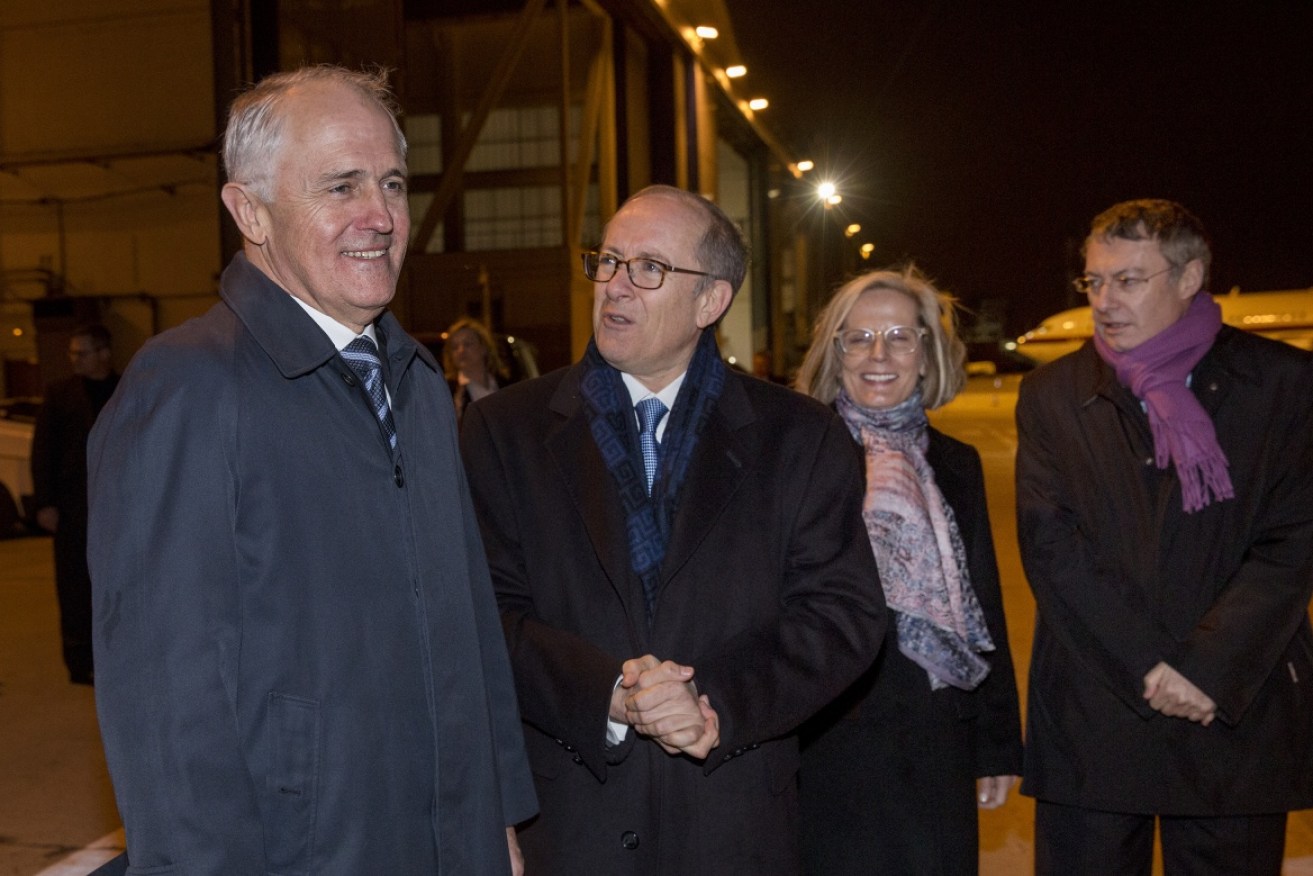Turnbull to boost climate investment

AAP
Malcolm Turnbull faces pressure to consider an emissions trading scheme, as he is poised to pledge a doubling of investment in clean energy technology.
The prime minister will join US President Barack Obama and other leaders in launching a 20-country plan known as Mission Innovation at the UN climate talks in Paris.
As part of the plan, Australian government investment in clean energy research and development will double to about $200 million by 2020.
• Bill Gates shares father’s birthday milestone
• Support for Coalition remains unchanged: poll
• Turnbull, Key pay respects
Mr Turnbull will set out Australia’s plan to reach its target of reducing emissions by 26 to 28 per cent on 2005 levels by 2030 in a speech in Paris about 2am (AEDT) on Tuesday.
However, a Climate Change Authority draft report cast doubt on the target and called for an ETS to be considered.
While Australia was on track to meet its 2020 emissions cut target, “meeting the government’s 2030 target is likely to remain a substantial task”, the authority report said.
Acting chairman Stuart Allinson said it was time to take a fresh look at all climate policy “including the various forms of emissions trading schemes”.
Australia wants the Paris agreement to include five-yearly reviews, allowing nations to increase their targets and make them more accountable.
The Mission Innovation plan involves 20 countries representing 80 per cent of global clean energy research and development budgets.
An independent private initiative known as the Breakthrough Energy Coalition – spearheaded by Bill Gates and involving 28 investors – will invest in companies that emerge from the research programs of Mission Innovation countries.

Political parties disagree on the clean energy target. Photo: AAP
Environment Minister Greg Hunt said there was a positive mood going into the summit.
“It won’t be a perfect outcome but I think it will be a critical outcome and it will be a success,” he told ABC radio.
The setting of a goal to keep warming to within two degrees Celsius was well underway, he said.
The Labor Opposition says the target should be more ambitious, setting its own goal of a 45 per cent reduction on 2005 levels by 2030.
Mr Hunt said the government was open to a higher target but would need to see greater progress domestically on cutting emissions, as well as strong global action and the possible adoption by Australia of international units or credits in 2017.
Opposition Leader Bill Shorten, who will be an observer at the summit and plans to restore emissions trading in government, believes it will be more successful than Copenhagen six years ago.
“I think the world’s recognised it cannot afford to keep ignoring the problem of climate change,” he said.
Greens leader Richard di Natale said the government remained committed to axing two key clean energy investment bodies.
“How can you say you want to support science and on the other hand you cut ARENA (Australian Renewable Energy Agency) and the Clean Energy Finance Corporation – it doesn’t make sense,” he said.
Foreign Minister Julie Bishop told parliament the abolition of the two bodies remained coalition policy.
But she attacked Labor for setting a “reckless pie in the sky” target which would require an effective carbon tax of $200 a tonne.
-AAP







